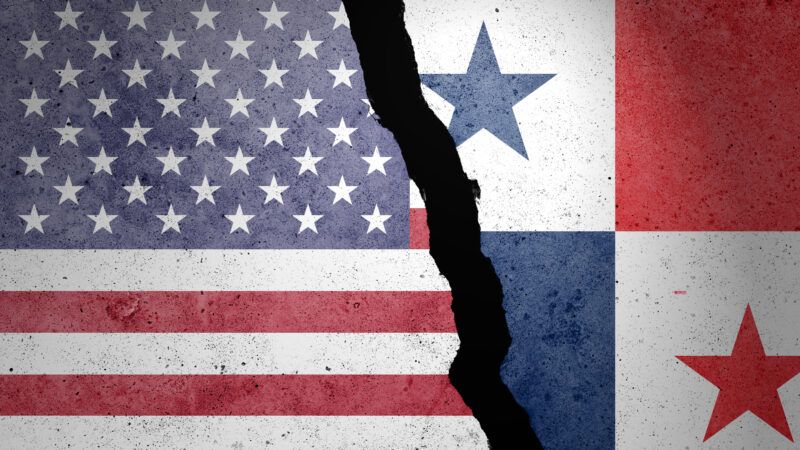Lawmakers Back Trump's Push To Regain Control of the Panama Canal
Retaking the canal won’t protect national security.

Over the weekend, President Donald Trump reaffirmed his Day 1 promise to seize control of the Panama Canal to counter China's alleged growing influence in the region. The president told reporters, "We're going to take it back or something really powerful is going to happen."
Trump's push to take control of the area is receiving support from lawmakers in the U.S. Congress. In January, Rep. Dusty Johnson (R–S.D.) introduced the Panama Canal Repurchase Act to authorize the president to enter into negotiations to reacquire the canal. The Republican Policy Committee of the U.S. House of Representatives, meanwhile, has released a memo that details policies to accomplish Trump's Panama plans, including tariffs and the International Emergency Economic Powers Act—a 1977 law that gives the president the power to regulate international commerce, block assets, or confiscate property to protect national security.
The Senate Committee on Commerce, Science, and Transportation recently convened a hearing on the issue, where Sen. Ted Cruz (R–Texas) said, "We need to ensure that Panama's relationships with foreign powers do not threaten the free flow of trade or undermine the security of the region."
The Panama Canal, the second-busiest canal in the world and a vital global trade route, has long been a point of interest to America. In 1977, President Jimmy Carter signed the Neutrality Treaty, allowing the U.S. to use its military to defend the Panama Canal against any threat to the canal's neutrality. In that same year, Carter signed the Panama Canal Treaty, which handed over control of the canal to Panama beginning in 1999.
Today, China is the second-largest user of the Canal after the United States. Chinese companies have a major presence in the canal, operating two major ports at both ends of the canal and financing the construction of large infrastructure projects, including a cruise terminal. Despite this commercial presence, there is no evidence of Chinese military activity or Chinese control of the canal.
This isn't the first time Chinese activity in the Panama Canal has stoked national security concerns. In 1998, the Army said that a Hong Kong-based business was planning to take control of the canal. However, in 1999, the Pentagon rejected that notion and stated that the business was not "a national security threat."
Despite Trump's concerns, there is little evidence to suggest that China's activity in the region is a cause for concern. Using military force to retake the canal would not strengthen national security. Instead, it would harm a relationship with a close U.S. ally.


Show Comments (39)